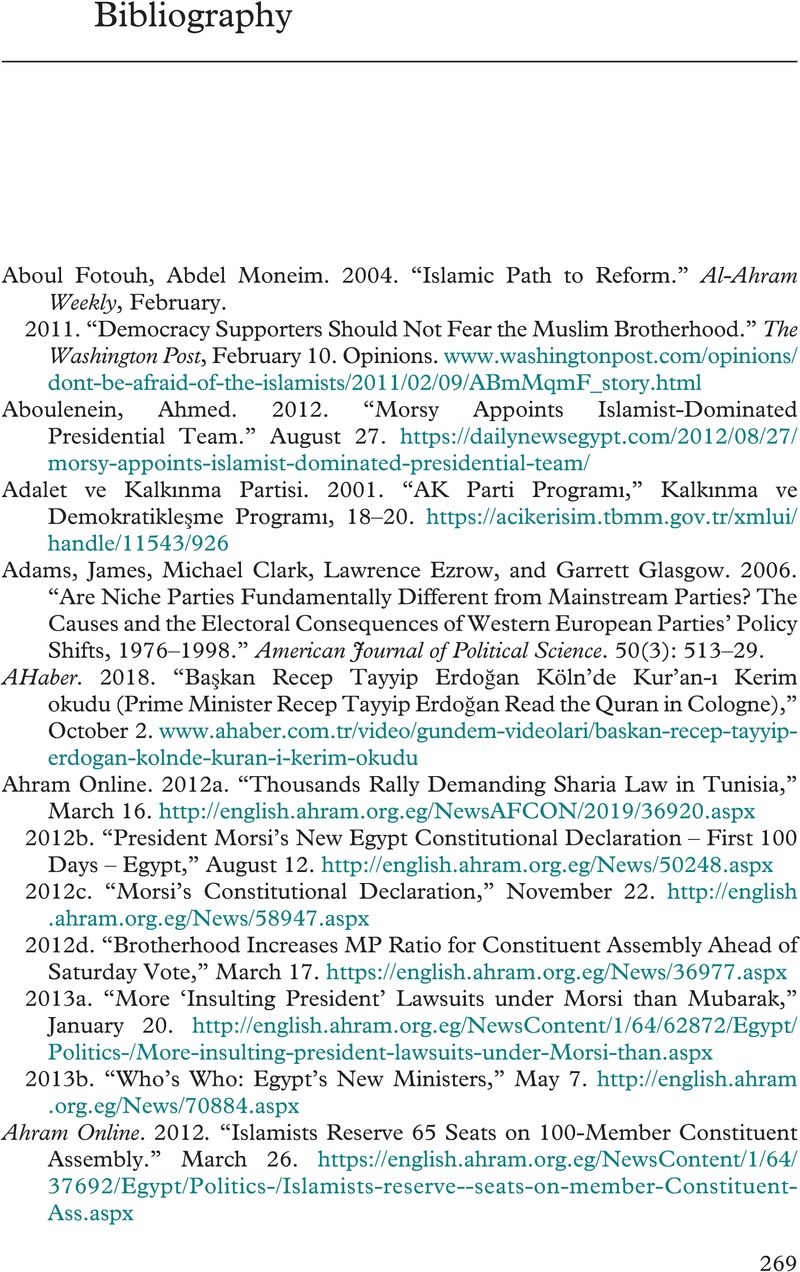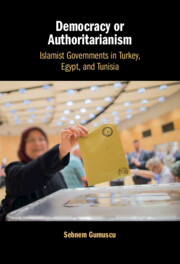Book contents
- Democracy or Authoritarianism
- Democracy or Authoritarianism
- Copyright page
- Contents
- Figures
- Acknowledgments
- Abbreviations
- Introduction
- 1 Modernization, Inclusion, and Power
- 2 A Theory of Intraparty Politics
- 3 The AKP’s Pivot from Liberal Democracy to Electoral Islamism
- 4 Electoral Islamism and Killing the Dream of a Democratic Muslim Brotherhood
- 5 Ennahda’s Path toward Liberal Islamism
- Conclusion
- Interviews
- Bibliography
- Index
- References
Bibliography
Published online by Cambridge University Press: 09 March 2023
- Democracy or Authoritarianism
- Democracy or Authoritarianism
- Copyright page
- Contents
- Figures
- Acknowledgments
- Abbreviations
- Introduction
- 1 Modernization, Inclusion, and Power
- 2 A Theory of Intraparty Politics
- 3 The AKP’s Pivot from Liberal Democracy to Electoral Islamism
- 4 Electoral Islamism and Killing the Dream of a Democratic Muslim Brotherhood
- 5 Ennahda’s Path toward Liberal Islamism
- Conclusion
- Interviews
- Bibliography
- Index
- References
Summary

- Type
- Chapter
- Information
- Democracy or AuthoritarianismIslamist Governments in Turkey, Egypt, and Tunisia, pp. 269 - 292Publisher: Cambridge University PressPrint publication year: 2023



